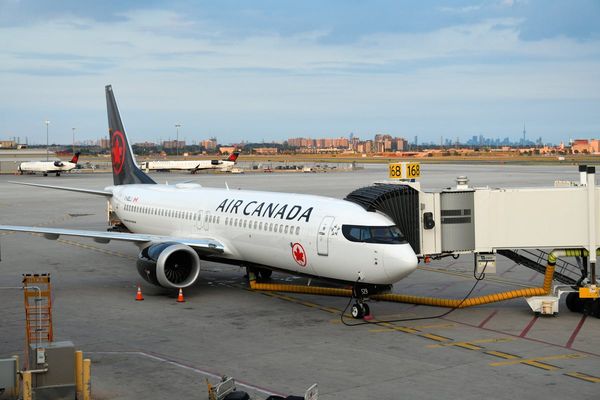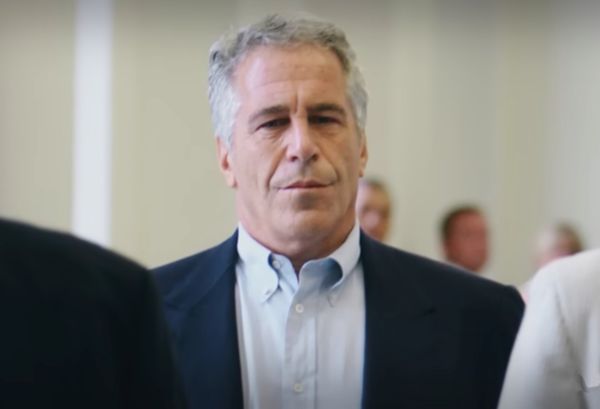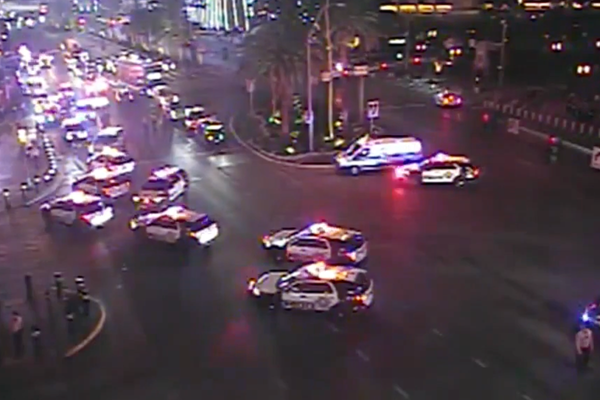
Melbourne, Australia – At home in Australia, Julian Assange’s family and friends are preparing for his possible extradition to the United States, ahead of what could be his final hearing in the United Kingdom on Monday.
Assange’s half-brother Gabriel Shipton, who spoke to Al Jazeera from Melbourne before flying to London, said he had already booked a flight to the US.
A filmmaker who worked on blockbusters like Mad Max before producing a documentary on his brother, Shipton has travelled the world advocating for Assange’s release, from Mexico City to London and Washington, DC.
Earlier this year, he was a guest of cross-bench supporters of Assange at US President Joe Biden’s State of the Union address.
The invitation reflected interest in his brother’s case both in Washington, DC and back home in Australia. Biden told journalists last month he was “considering” a request from Australia to drop the US prosecution.
Assange rose to prominence with the launch of Wikileaks in 2006, creating an online whistleblower platform for people to submit classified material such as documents and videos anonymously. Footage of a US Apache helicopter attack in Baghdad, which killed a dozen people, including two journalists, raised the platform’s profile, while the 2010 release of thousands of classified US documents on the wars in Afghanistan and Iraq, as well as a trove of diplomatic cables, cemented its reputation.
Shipton told Al Jazeera the recent attention from Washington, DC had been notable, even as his brother’s options to fight extradition in the UK appeared close to running out.
“To get attention there on a case of a single person is very significant, particularly after Julian’s been fighting this extradition for five years,” Shipton told Al Jazeera, adding that he hoped the Australian prime minister was following up with Biden.
“We’re always trying to encourage the Australian government to do more.”
A test for US democracy
Assange’s possible extradition to the US could see freedom of expression thrown into the spotlight during an election year that has already seen mass arrests at student antiwar protests.
Shipton told Al Jazeera the pro-Palestinian protests had helped bring “freedom of speech, freedom to assembly, particularly in the United States, front of mind again”, issues he notes have parallels with his brother’s story.
While Wikileaks published material about many countries, it was the administration of former US President Donald Trump that charged Assange in 2019 with 17 counts of violating the Espionage Act.
US lawyers argue Assange is guilty of conspiring with Chelsea Manning, a former army intelligence analyst, who spent seven years in prison for leaking material to WikiLeaks before former US President Barack Obama commuted her sentence.
“It’s an invaluable resource that remains utterly essential to understand how power works, not just US power, but global power,” Antony Loewenstein, an independent Australian journalist and author, said of the Wikileaks archive.
“I always quote and detail [Wikileaks’s] work on a range of issues from the drug war, to Israel/Palestine, to the US war on terror, to Afghanistan,” Loewenstein said, noting that Wikileaks also published materials on Bashar al-Assad’s Syria and Vladimir Putin’s Russia.
“It’s just an incredible historical resource,” he said.
Loewenstein’s most recent book, the Palestine Laboratory, explores Israel’s role in spreading mass surveillance around the world, another issue Loewenstein notes, that Assange often spoke about.
“One thing that Julian has often said, and he’s correct, is that the internet is on the one hand an incredibly powerful information tool… but it’s also the biggest mass surveillance tool ever designed in history,” said Loewenstein.
Emma Shortis, a senior researcher in international and security affairs at the Canberra-based think tank The Australia Institute, told Al Jazeera that while she hoped Assange would not be extradited, if he was, his case might come to trial around November’s US election when Biden is hoping to beat off a challenge from presumptive Republican candidate Trump.
Prosecuting a First Amendment case against an Australian while presenting the election as “an existential test for American democracy” would be “politically irreconcilable” for Biden, Shortis said.
As the Biden administration struggles to attract young voters disenchanted over its support for Israel’s war on Gaza, Shortis noted that younger generations were aware of the underlying issues Assange’s case could bring up.
“I think young people, in particular, are deeply aware of those contradictions and the way that American power functions and the way it selectively bestows rights on people,” she said.
For Loewenstein, pursuing Assange would set “an incredibly dangerous precedent at a time where in so many countries freedom of the press is under attack”.
“This is not by any means a defence of Biden, I’ve been critical of him for 20 years, but a second Trump term would be a real acceleration of that authoritarian turn, including against the press and journalists and freedom of information,” Loewenstein added.

At home in Australia Assange’s supporters include the national journalist association the Media Entertainment and Arts Alliance (MEAA) and a cross-bench alliance of parliamentarians, including independent Andrew Wilkie.
“Surely this man has suffered enough,” Wilkie implored the Australian parliament earlier this year.
“Who could possibly forget the grainy image, provided to WikiLeaks by a brave whistleblower, that subsequently was released under the title ‘collateral murder‘?”, Wilkie said.
“It was footage of a US attack helicopter gunning down and killing innocent civilians and Reuters journalists in a street in Iraq,” he added.
Many of Assange’s supporters fear his possible extradition to the US could come with serious personal consequences.
He was first arrested in London in 2010 on a Swedish warrant accusing him of sexual assault. Allowed bail pending the extradition case, Assange took refuge in Ecuador’s London Embassy in 2012 after a court ruled he could be sent to Sweden for trial.
He spent the next seven years in the tiny embassy – during which Swedish police withdrew the rape charges – before UK police arrested him on charges of breaching his bail conditions.
Assange was jailed and the US filed its case for extradition.
“I worry that if Julian is extradited to the US, that he would never see the light of day again, barring a deal between Australia and the US, and he would die in prison,” Loewenstein told Al Jazeera.
As the hours to the UK court’s decision tick down, Shortis noted that Assange’s fate could still change.
“Biden could end it in a moment. It’s a political decision for the President to make, and he could do it in an instant if he chose to,” she said.







